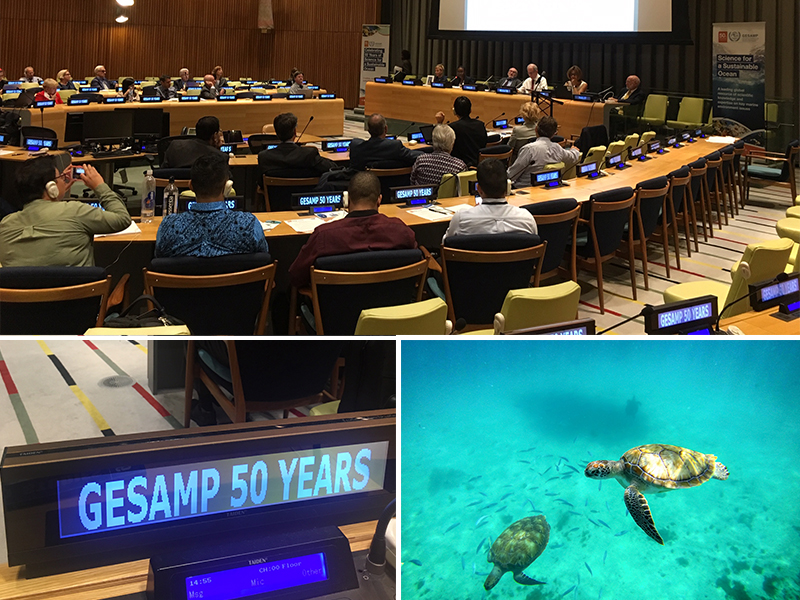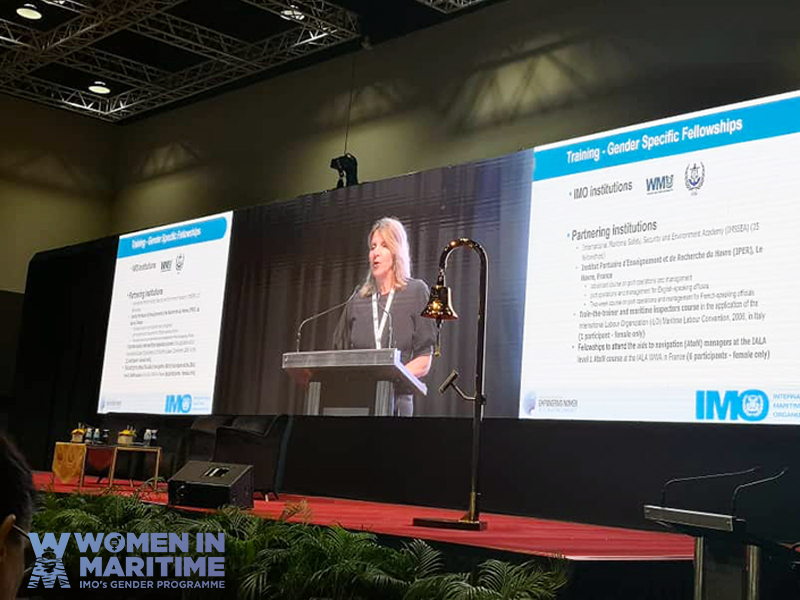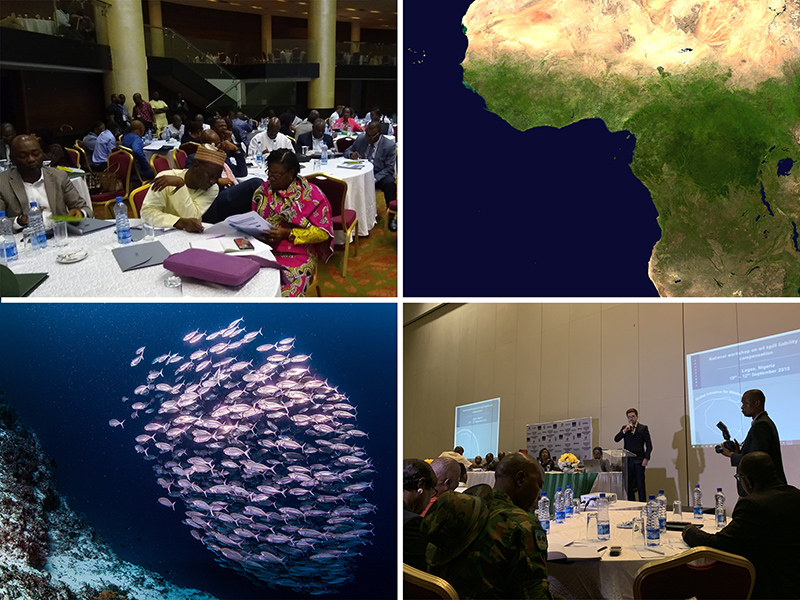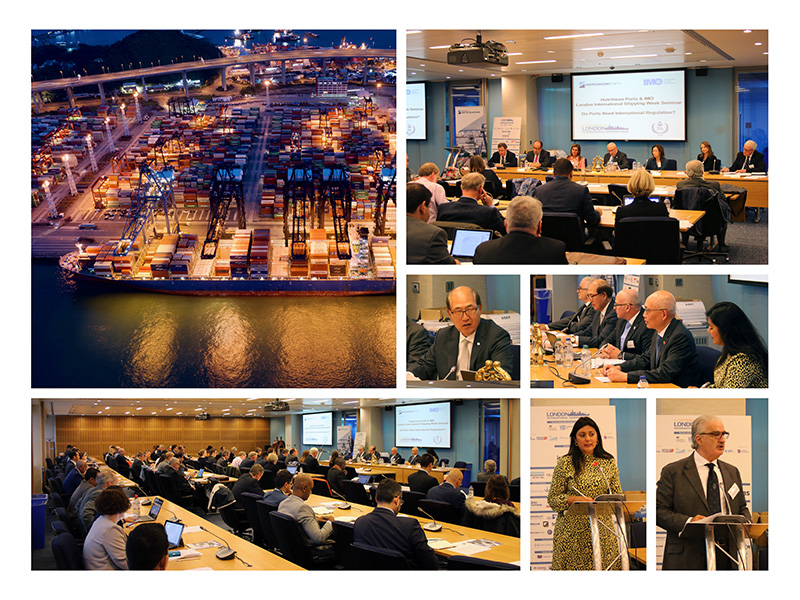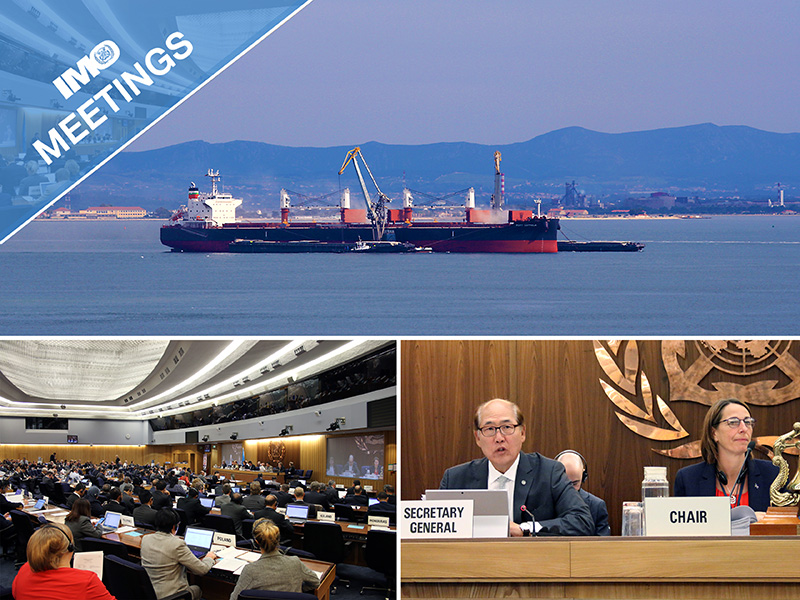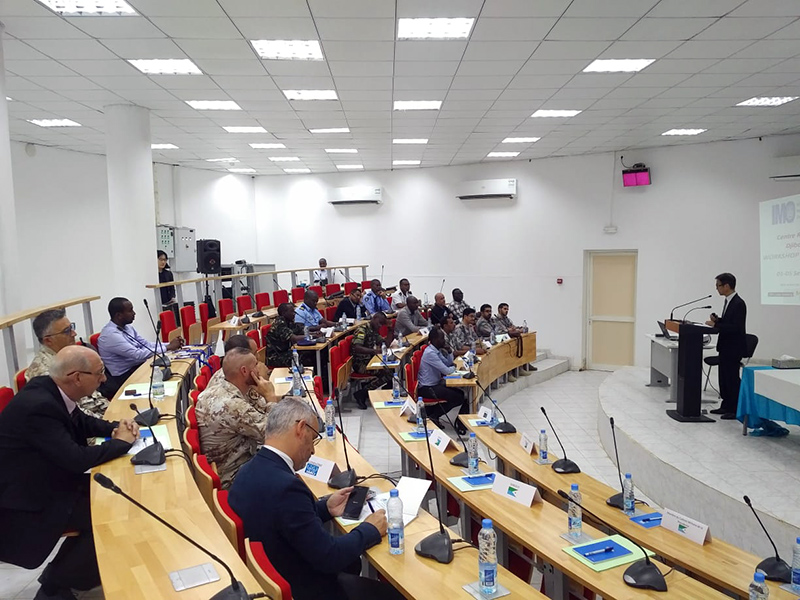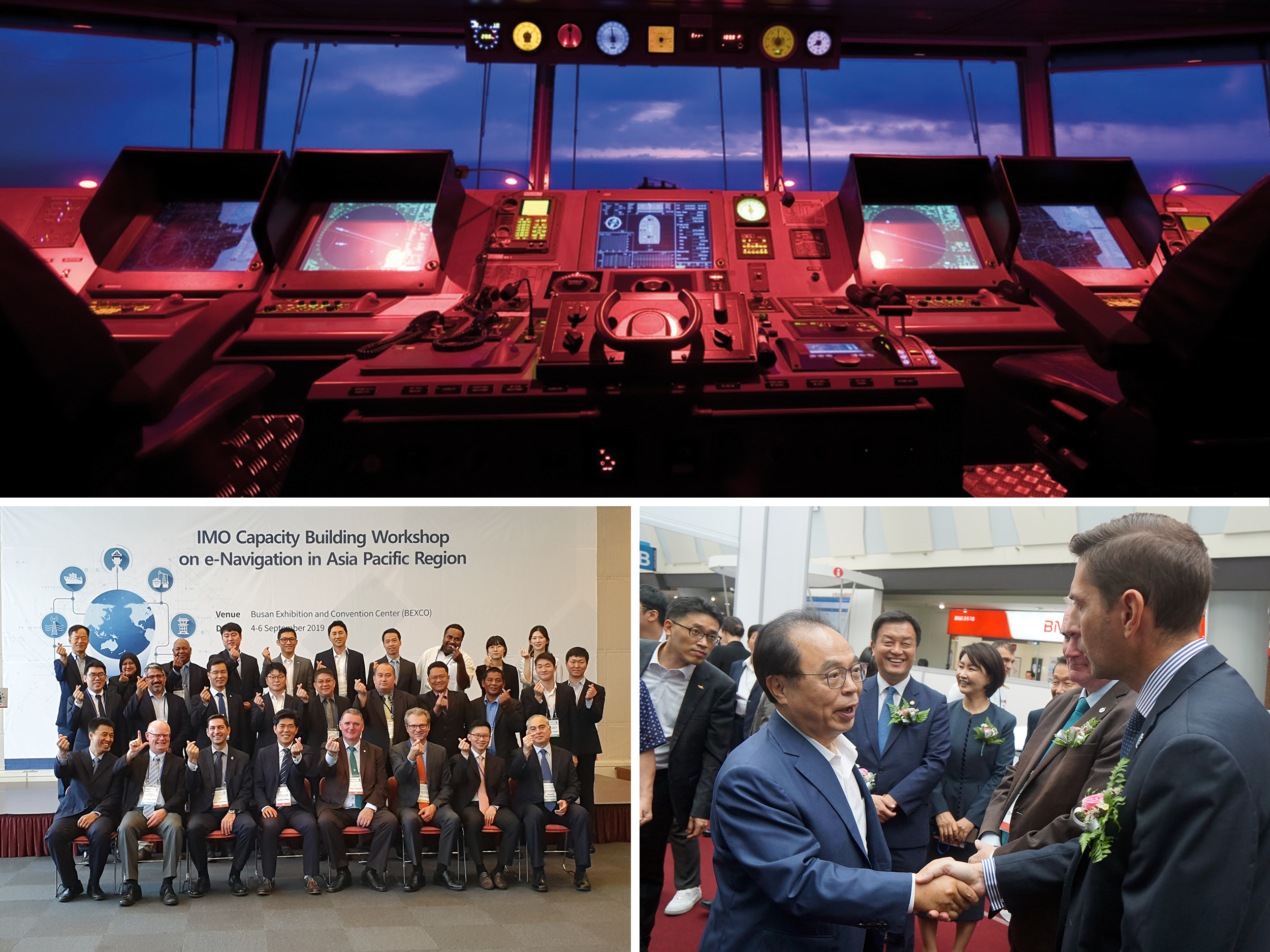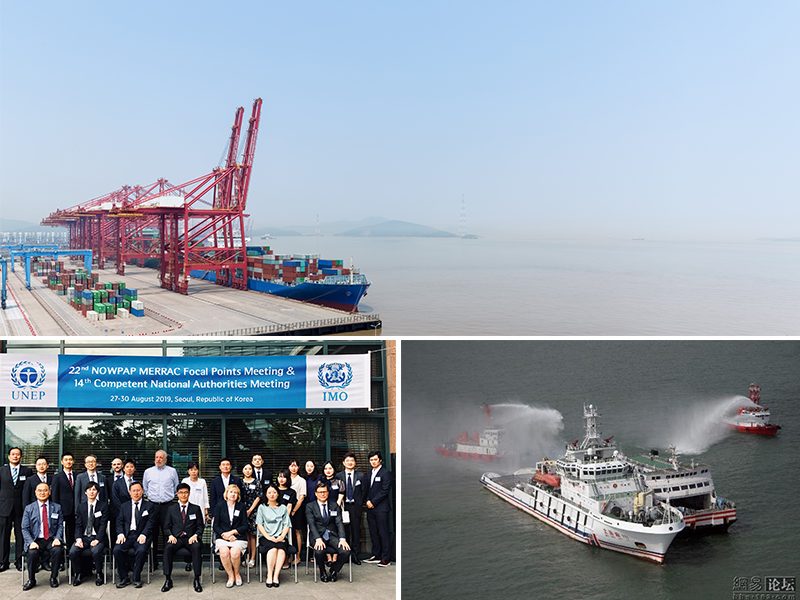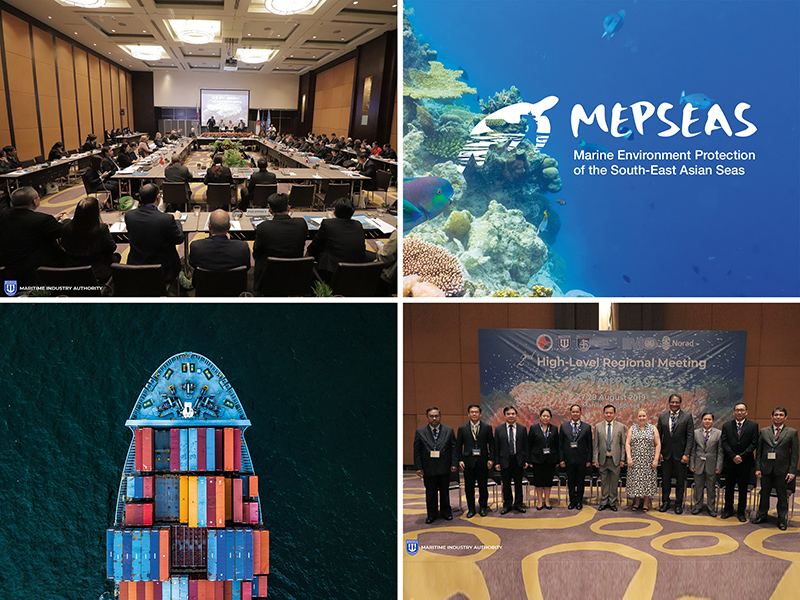Whats New 2019
GESAMP - celebrating fifty years of service in ocean science
When developing policies or strategies affecting the ocean, the United Nations system needs to base its work on a solid, scientific foundation. That is provided by GESAMP, a unique independent body administered by IMO and which, this week, is celebrating its 50th anniversary. GESAMP is the Joint Group of Experts on the Scientific Aspects of Marine Environmental Protection. It is the independent body of experts that advises the United Nations system on both on-going and newly arising marine environmental scientific issues. more...
Malaysia encourages gender diversity in the maritime industry
The 2019 World Maritime Week kicked off in Kuala Lumpur, Malaysia (10 September), with an opening session dedicated to "Encouraging gender diversity in the maritime industry" in recognition of this year's IMO World Maritime theme. During the session, IMO showcased its Women in Maritime gender programme. more...
Oil spill liability and compensation training underway in Nigeria
Nigerian officials dealing with oil spill liability and
compensation are undergoing training under the GI WACAF – a collaboration
between IMO and IPIECA to strengthen oil spill response capacity in west,
central and southern Africa. Seventy participants from across national authorities,
federal government and oil and maritime industries are taking part in the
workshop in Lagos, Nigeria (10-12 September). more...
International regulation of ports - yes or no?
Ports are essential for the global supply chain - but do they need more international regulation? High-level speakers engaged in a lively debate at a joint Hutchison Ports/IMO/IMO International Maritime Law Institute (IMLI) seminar (9 September), to address the question: "Do ports need international regulation?". IMO Secretary-General Kitack Lim reminded the audience that the IMO Convention does give the Organization a mandate to regulate in ports and some current IMO regulations do indeed extend to port operations - for example those surrounding security, reception facilities and the Facilitation (FAL) Convention. "However, there are many opportunities to further explore and enhance the cooperation between shipping, ports and the logistics industries." more...
Safe handling of bulk cargoes
The safety of ships carrying bulk cargoes depends on proper implementation of IMO rules - and training is crucial. A new IMO Model Course on Safe Handling and Transport of Solid Bulk Cargoes is expected to be validated by IMO's Sub-Committee on Carriage of Cargoes and Containers when it meets this week (CCC 6, 9-13 September). Given the new fuels and/or fuel blends being developed to ensure compliance with the 0.50% sulphur limit (from 1 January 2020) and IMO 2030 and 2050 CO₂ emission targets, as outlined in the IMO GHG strategy, the work of the Sub-Committee on the safety provisions for ships using low-flashpoint fuels, will also be considered as a high priority. (Photos here) more...
Training trainers for maritime security in West Indian Ocean and Gulf of Aden
The latest course to prepare participants to deliver training to enhance security in the maritime domain has been delivered at the Djibouti Regional Training Centre (DRTC), Djibouti (1-5 September). Participants from 13 countries * learned teaching skills and were given instruction on dealing with maritime crimes at sea, including piracy/robbery, drug trafficking, marine terrorism, weapons smuggling and human trafficking. more...
Towards e-navigation in Asia-Pacific
The implementation of e-navigation - the user-friendly collection, harmonization and display of essential maritime information - will contribute to enhanced maritime safety and security and support efficient shipping while protecting the marine environment. Various e-navigation solutions are being developed., taking into account IMO guidance and regulations. The SMART-Navigation Project, organized and funded by the Ministry of Oceans and Fisheries, Republic of Korea, was presented during an IMO regional workshop on e-navigation for the Asia-Pacific region, held in Busan, Republic of Korea (4-6 September). more...
Pacific protection activities expanded
A
key IMO-supported international centre responsible for co-ordinating efforts to
protect the marine environment in the north-west Pacific Ocean is to expand its
areas of work, following a high-level meeting in Seoul. MERRAC (the Marine Environmental Emergency Preparedness
and Response Regional Activity Centre), is the focus for cooperation between China,
Japan, the Republic of Korea and the Russian Federation on preventing spills,
and ensuring an effective joint response to any spills
that do occur in the region. more...
Committed to protecting South-East Asian seas
The seven South-East Asian countries
participating in IMO’s MEPSEAS* project have reiterated their commitment to
implementing high priority IMO conventions** which aim to protect the marine
environment. Delegations from Cambodia, Indonesia,
Malaysia, Myanmar, Philippines, Thailand and Vietnam, led by their Heads of
Maritime Administrations and other senior officials, gathered at the Second
High-level Regional Meeting of the project in Manila, Philippines (27-29
August). more...
